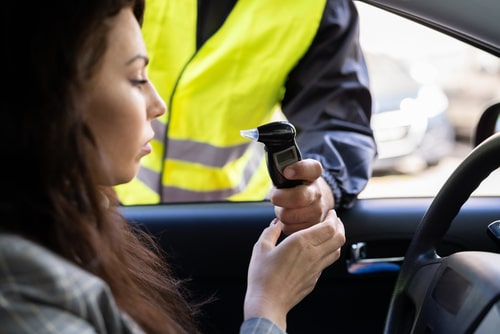Is “Do Not Blow” Outdated Advice in Texas?
 Since a DWI conviction can have far-reaching effects on your future, you must know what to do if pulled over. Virtually anyone who has been to a bar or nightclub in Texas has seen the phrase “Do Not Blow!” prominently displayed. You may not have thought much about it until you are asked to perform a breathalyzer test.
Since a DWI conviction can have far-reaching effects on your future, you must know what to do if pulled over. Virtually anyone who has been to a bar or nightclub in Texas has seen the phrase “Do Not Blow!” prominently displayed. You may not have thought much about it until you are asked to perform a breathalyzer test.
It is true that many attorneys once advised their clients not to submit to a breathalyzer test. After all, why provide evidence against yourself? Now, if you refuse to provide a sample in Tarrant County, the police will most likely obtain a search warrant and take your blood. In fact, some police departments no longer ask for a breath test, they ask only for blood. Whether you agree to a breathalyzer test or not, if you have been charged with a Texas DWI you need a highly skilled lawyer advocating on your behalf.
Understanding the Changes in Texas DWI Laws That Affect Breathalyzer Refusals
Texas has historically been an “implied consent” state. This means that if you have a Texas driver’s license, you have implicitly consented to an alcohol or drug test. Refusal of these tests resulted in an automatic driver’s license suspension.
Some counties in Texas—including Tarrant County—have implemented “no refusal” policies. “No refusal” policies are no longer just on the weekends or major holidays. Since 2020, Tarrant County has enforced a countywide, year-round “no refusal” policy.
An impaired driver who refuses to take a breathalyzer test will be taken to a police station or other location for a blood test. If you refuse to provide a sample, the police will apply for a search warrant to take your blood. A judge will issue a probable cause warrant and blood will be taken—forcefully, if necessary.
Why is a Breathalyzer Test a Better Option Than a Blood Test?
Breathalyzers, blood tests, and field sobriety tests all have their issues, yet most jurors are more likely to believe the accuracy of blood test results over breathalyzer results. Since a breathalyzer test is less accurate, your attorney has a better defense strategy and more reasonable doubt when compared to a blood test.
The Intoxilyzer 9000 breathalyzer is now the only breath machine used across Texas. The Intoxilyzer 9000, like most breathalyzers, uses infrared light to identify ethyl alcohol, while also measuring quantity. Some factors that can affect the results of the Intoxilyzer 9000 include:
-
Temperature of the breath
-
The way an individual breathes (shallow breathers vs. deep breathers)
-
Test bias (breathalyzers are generally set for the “average” male, causing females to score higher even when they have had less to drink)
-
Health conditions (diabetes, liver disease, heart disease, gum disease, fever, heartburn, and even being on a keto diet can all affect the breathalyzer results)
-
Radio interference is common for the Intoxilyzer 9000 when a cell phone or police officer’s radio is near
-
Poorly maintained breathalyzers
-
Improperly administered breathalyzer tests
Refusal to blow can also result in a longer driver’s license suspension, plus jurors may believe that a person who refuses to blow is guilty of the DWI charges.
Contact a Tarrant County, TX Criminal Defense Attorney
Being arrested and charged with DWI can be extremely stressful. When you call an experienced Fort Worth criminal defense lawyer you have taken an important first step in protecting your rights and future. Call The Dameron Law Firm at 817-222-0624 for a free consultation.

 817-222-0624
817-222-0624







